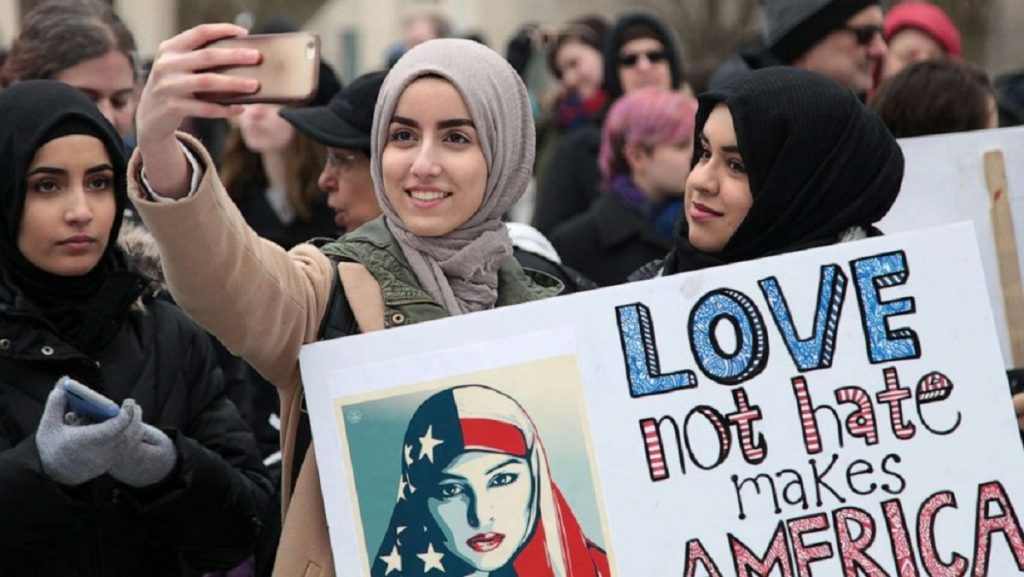Arab and Muslim Americans have long been vital threads in the fabric of American society. Beyond economic contributions and small business ownership, these communities are deeply engaged in social upliftment, humanitarian work, community service, and interfaith dialogue. This article explores how Arab and Muslim Americans are not only integrating into American society but actively elevating it through values of compassion, social justice, education, and volunteerism.
1. Community-Building and Civic Engagement
Arab and Muslim Americans have made major strides in organizing at the local, state, and national levels. Today, there are hundreds of community centers, mosques, advocacy groups, and student organizations that serve both religious and secular goals.
Key Initiatives:
-
MPAC (Muslim Public Affairs Council) and ADC (Arab American Anti-Discrimination Committee) are leading national organizations advocating for civil rights, public policy reform, and interfaith understanding.
-
MAS (Muslim American Society) and ISNA (Islamic Society of North America) work across the U.S. to promote civic education, social responsibility, and youth leadership.
These organizations help foster a culture of community service, political participation, and social awareness—especially among second-generation youth.
2. Humanitarian Contributions and Relief Work
Arab and Muslim communities in the U.S. have built extensive networks for charity, disaster relief, and international humanitarian aid. Some of the most prominent American-based Muslim NGOs include:
-
Islamic Relief USA: One of the largest Muslim humanitarian organizations, providing aid during natural disasters in the U.S. and globally.
-
Zakat Foundation of America: Focused on education, refugee support, and community development projects worldwide.
-
Pious Projects, Mercy-USA, and Helping Hand for Relief and Development: Active in both domestic hunger relief and emergency response abroad.
Even during the COVID-19 pandemic, Muslim organizations partnered with local hospitals and food banks to provide free meals, PPE, and emergency aid to thousands of Americans, regardless of faith or background.
3. Educational and Cultural Empowerment
The value of education is central in Arab and Muslim cultures, and this is reflected in the achievements of American Muslims in academia, medicine, and technology. According to Pew Research:
-
42% of American Muslims hold a college degree or higher—higher than the national average.
-
Arab Americans are overrepresented in STEM fields, medicine, and law.
Additionally, numerous Arab and Muslim cultural institutions have been established to preserve heritage and educate broader society:
-
Arab American National Museum (Dearborn, MI)
-
Palestinian Museum US (Connecticut)
-
Islamic schools and weekend Arabic programs across major cities
4. Interfaith and Social Justice Leadership
Arab and Muslim Americans are frequently involved in interfaith initiatives, racial justice campaigns, and movements for immigrants’ rights. Organizations like:
-
ING (Islamic Networks Group) lead nationwide interfaith education
-
Muslim leaders partnered with Black churches during Black Lives Matter protests
-
Muslim women’s organizations like HEART Women & Girls work on issues of gender justice and mental health
This shows a shift from simply “integrating” into society, to actively shaping it with ethical and humanitarian leadership.
5. Shifting Perceptions and Resilience
Despite facing Islamophobia and anti-Arab sentiment—especially in the post-9/11 era and during recent wars—Arab and Muslim Americans have responded with resilience. A new generation of public figures, academics, journalists, and social workers have emerged, reclaiming the narrative and building bridges across communities.
Notable public figures include:
-
Rashida Tlaib and Ilhan Omar in Congress
-
Journalists like Ayman Mohyeldin
-
Activists like Linda Sarsour and Huda Alkaff
The Arab and Muslim communities in America represent a dynamic force of humanitarianism, social justice, and civic engagement. Far from being on the margins, they are shaping a more inclusive, compassionate, and just American future—through service, dialogue, and leadership.

